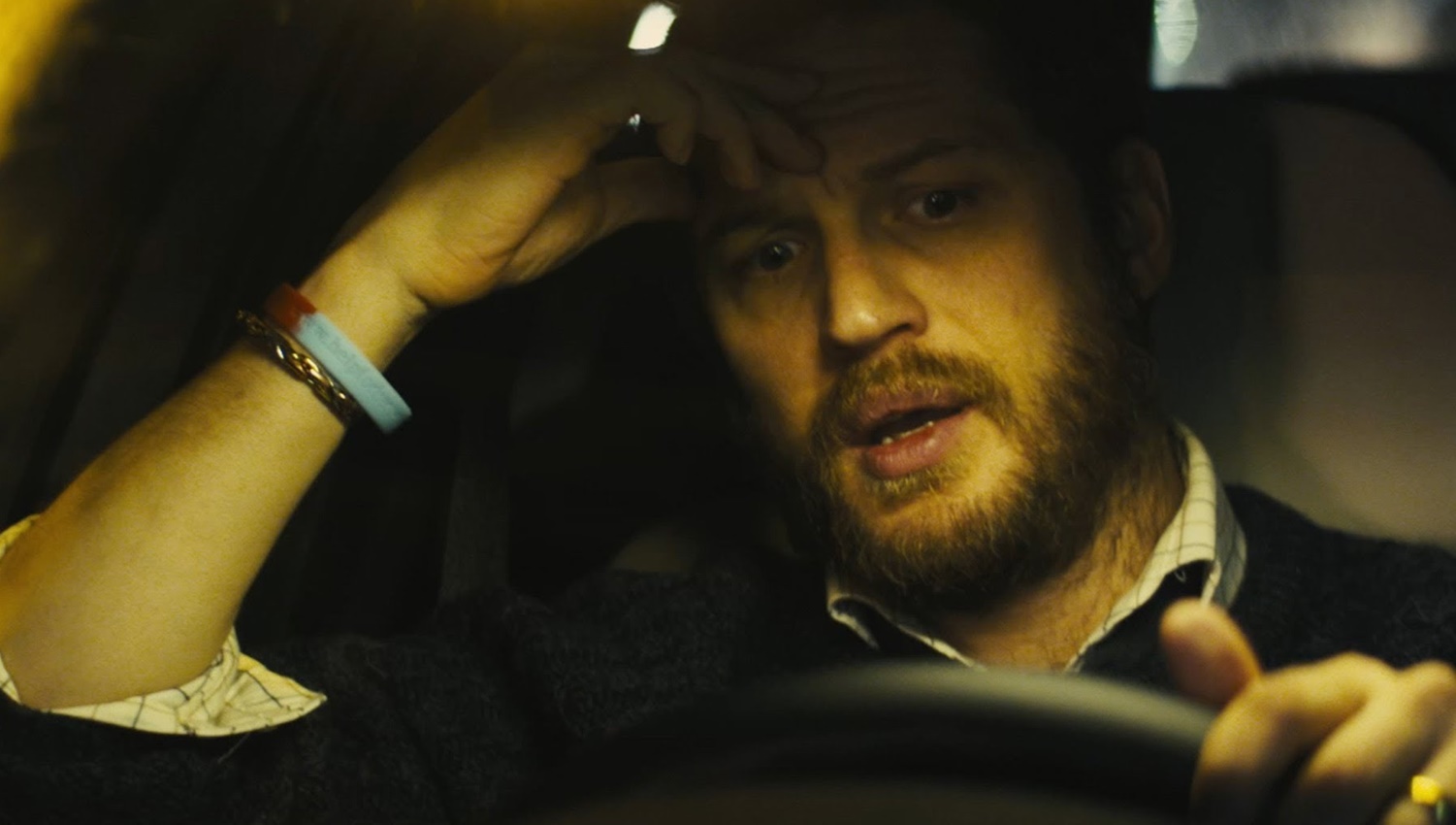Films with one actor on screen for the entire duration seem to be gaining in popularity. In 2013, Gravity was a success while All is Lost was a failure. Most of the films with just one actor on screen exist within the thriller or action genre (Cast Away, Phone Booth), but Locke, as tense as some of the moments are, has a calming pace. The entire film takes place in an SUV as our lead actor Tom Hardy (The Dark Knight Rises) is driving to a hospital in London. The majority of the 90 minutes are spent on the phone to various people, as Hardy’s character explains his actions and predicament. Through all of this we get a very good sense of his character, as well as his background.
Ivan Locke (Hardy) leaves the construction site of what is to be the largest non-government building in Europe on the most important day of his company pouring the foundation concrete. Locke is also supposed to be heading home after work to spend the evening with his wife and two boys as they watch an important sports game. As soon as he gets in his vehicle, however, he begins his many phone calls to Bethan, a woman he met 9 months ago who is about to have his child. Locke must break the news to his family over the phone as he drives quickly toward the hospital. He continually explains to Bethan and the doctors at her side that he is the father, but not her partner.
Hardy’s performance gives us more than we need to create the images in our minds.
The first thing I thought of as I watched and listened to Locke’s journey away from everything he loves, his work and family, toward a mistake that had returned to haunt him, is how this film could also work as a radio program. We never see the people he is on the phone with, but the script and Hardy’s performance gives us more than we need to create the images in our minds. While the audio and spoken dialogue are arguably the most important elements of the film, writer/director Steven Knight (Redemption) offers us really beautiful cinematography, and that’s saying a lot since most of the shots are inside the vehicle. The cinematography and editing in Locke go hand in hand, however. The score by Dickon Hinchliffe is another element, as in all the other single actor films, that makes it less of a one person show and more like an experience.
The script on which everything is built on is extremely clever with the order of the calls, which callers hang up, and which callers call back, etc. The viewer is more of a voyeur in this film, as we are privy to all these conversations, while the recipients on the other end do not get a full picture of the anxiety and stress Locke is facing as he drives. It’s a juggling act, an in motion office, as he tries to calm his family, be there for Bethan and guide his second hand man through the technicalities of his absence at the jobsite. However, the most impressive element out of everything I have mentioned is Hardy himself, who listens as much as he talks. Therefore, the performance is mostly in his eyes that are gleaming with pain and often streaming tears. It’s a triumph for him as an actor, but very likely not a film you would ever want to see twice.
Final Thought
Hardy gives another challenging and superb performance.

